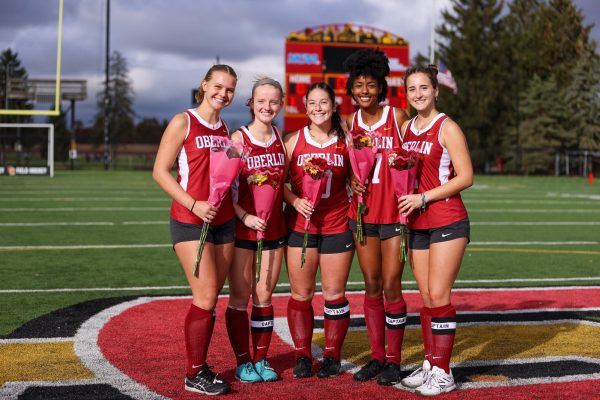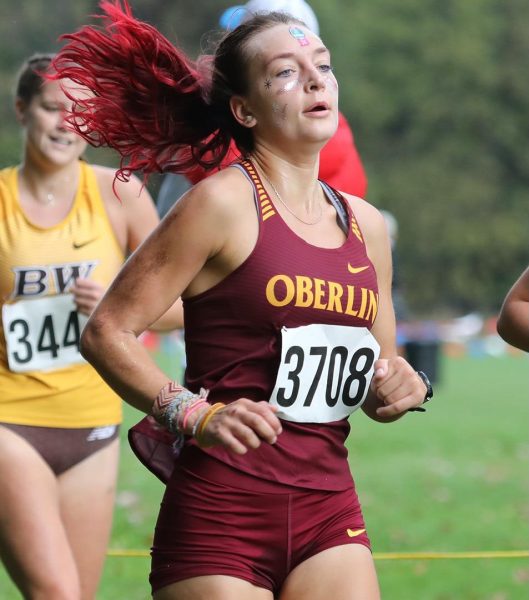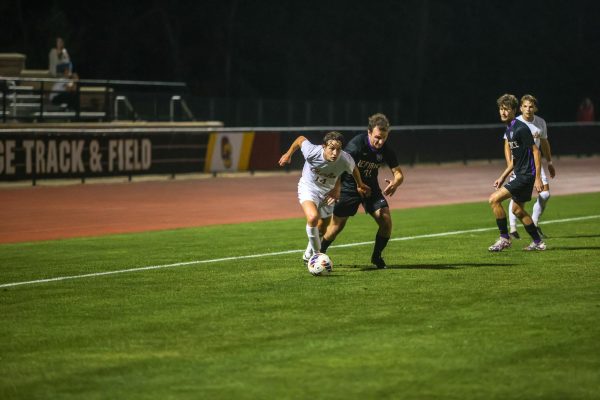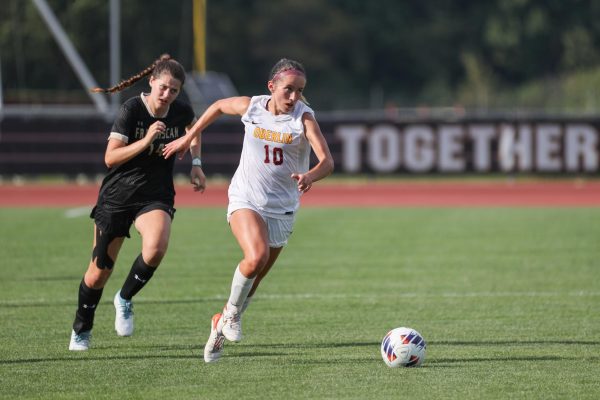Community of Athletes in OSCA Continues to Grow
For many at Oberlin, being a member of the Oberlin Student Cooperative Association is a central part of their college experience. OSCA provides a quirky and affordable community, leadership opportunities, and environmentally-wise and healthy food options for nearly one-quarter of the student body. Because of the nature of these completely student-run dining and housing facilities, being a member is a time commitment that consists of cooking and crew shifts or other managerial duties, which can conflict with athletic practices and games. However, for a small group of students, being a varsity athlete and a part of OSCA are not seen as mutually exclusive activities, providing unique communities and responsibilities.
College second-year and women’s soccer team member Madeline Lynam joined Pyle Inn co-op last semester in the hopes of accessing better food options. She was also impressed by OSCA’s commitment to sustainability.
“I’m vegan, so sometimes the food from [Campus Dining Services] can be limiting, but I’d say 90 percent of co-op food is vegan,” Lynam said. “I love that all of our food comes from around the northern Ohio area. It just makes me feel a lot better about what I’m putting into my body and the ethics of it.”
For College second-year and member of the women’s cross country and track & field teams Lauren Cole, being a part of Harkness House co-op was appealing because of the family dynamic and culture of co-op living, one that is built on sustainability and accessibility.
“One of the biggest initial draws for me was the idea of self-sustainability as an organization, since OSCA is [run] by and for students, cleaned by and for students, cooked for and fed by students, and so on,” Cole said. “I was also very drawn to OSCA because of the socially communal — almost familial — aspect of co-ops. Co-ops are well known to be especially warm and welcoming places. Accessibility, in many forms, is a central concern of all co-ops, and in many ways everyone’s well-being within one co-op is tied together.”
OSCA was established in the 1950s and was at the forefront of a movement to promote fair labor practices, create policies to reduce students’ environmental impact, participate in social justice initiatives, and promote co-ed housing and dining. Being a part of Harkness co-op has introduced College third-year soccer player Lucy Fredell to this history in a way that has enriched her time at Oberlin.
“[Co-ops] have shown me another side of Oberlin that I might’ve not really seen at all if I was only an athlete, which is kind of disappointing to think about,” she said. “I think that the tradition of co-ops on this campus is a history that’s really important to know about. It’s definitely deepened what it means to go to Oberlin for me.”
This is not to say that co-op life is without its challenges. For athletes that have two-hour practices everyday, it can be difficult to plan ahead for meals and ensure that they are getting enough food, especially protein and vegetables. An additional concern for athletes that are interested in joining OSCA is the co-op work schedule.
“One of the biggest difficulties in being involved in both OSCA and a sports team is finding co-op shift hours that I can fit into my schedule,” Cole said. “Another difficulty is simply having to miss a large amount of meals because of the timing of practice and meets. Luckily, OSCA has a ‘save-plate’ system to guarantee that everyone can get a plate from every meal, regardless of whether they can physically be there.”
College second-year and member of the women’s cross country and track & field teams Sunniva Sheffield shared similar sentiments about food accessibility within OSCA.
“I was definitely worried about [meals being cancelled] in the beginning, but I have never gone to a meal and not had food during my time at Pyle [Inn co-op],” Sheffield said. “And the fridge is open to you so you can always make your own food if there’s not enough. There’s so much food that I feel like you can never go hungry; there’s always tons of vegetables and protein and grains.”
Being members of OSCA has also allowed student-athletes to engage in discourse about navigating social circles that can be less receptive to campus sports culture.
“There’s a lot of perception about athletes being part of a certain parts of campus culture and participating in certain social activities,” Fredell said. “I think that co-ops are kind of the opposite, and athletes think of [themselves] as being the opposite [of] co-op culture as well. I’ve heard a couple of people say, ‘Oh, when I sit down and talk to athletes individually, they’re all really nice.’”
Fredell also expressed that her experiences in co-ops have been welcoming of LGBTQ+ identities in ways that are not always shown as clearly in the athletic community.
“OSCA is incredibly queer-friendly and is made up of many queer people and the athlete community is not the same,” Fredell said. “I think if I hadn’t joined [OSCA], I wouldn’t have had so many friends that were queer.”
Athletes in OSCA are part of a small but growing body of students looking to become further engaged in the Oberlin community both on and off the field.
“I find the vast majority of OSCAns are earnestly compassionate and engaged in the accessibility, quality, and systematic workings of the co-op community,” Cole said, reflecting on her decision to join Harkness Hall Co-op. “The idea of putting in a few weekly hours to clean and feed a group of people that I belong to in exchange for a much more affordable cost of living and a more direct connection to the food I eat makes both ethical and financial sense to me.”







